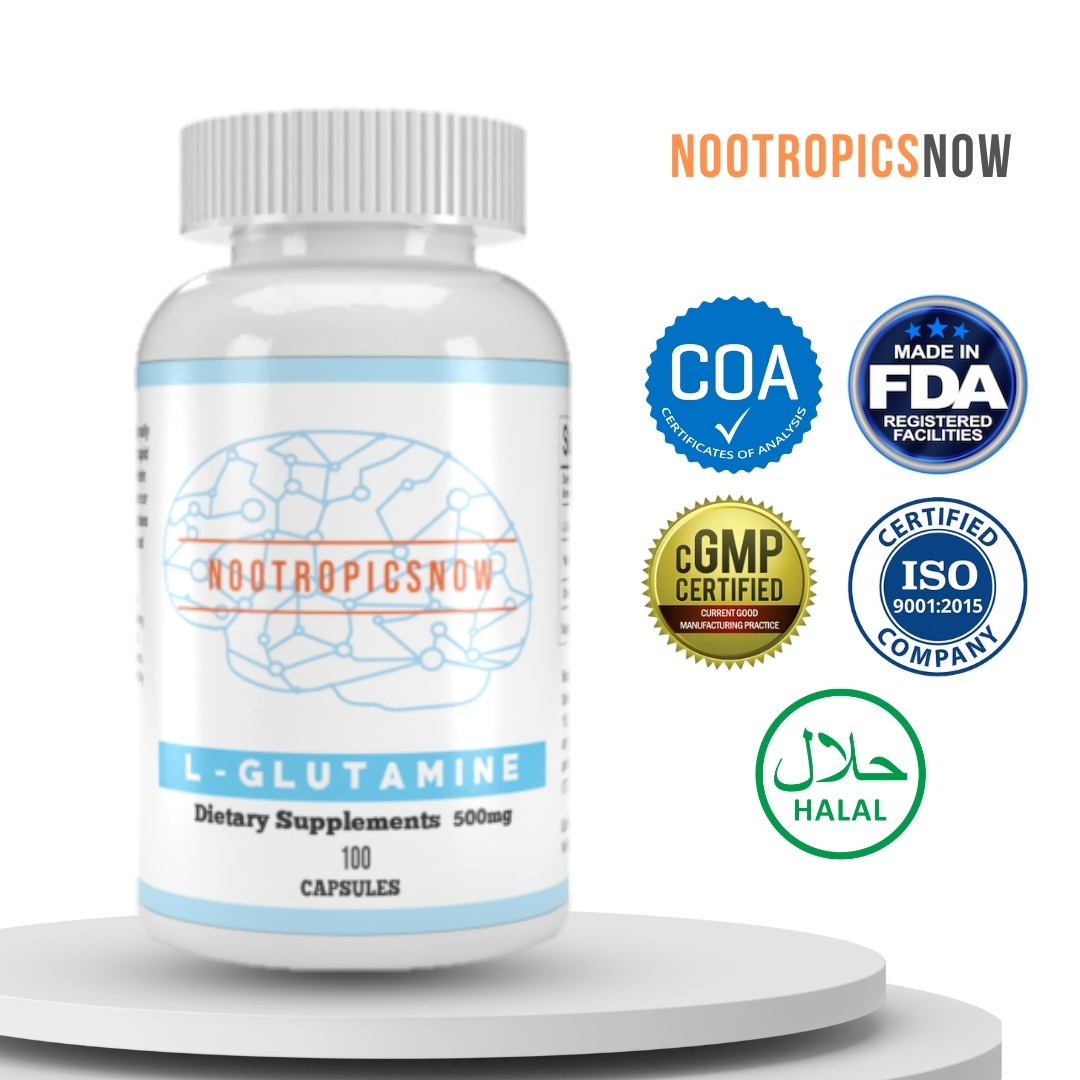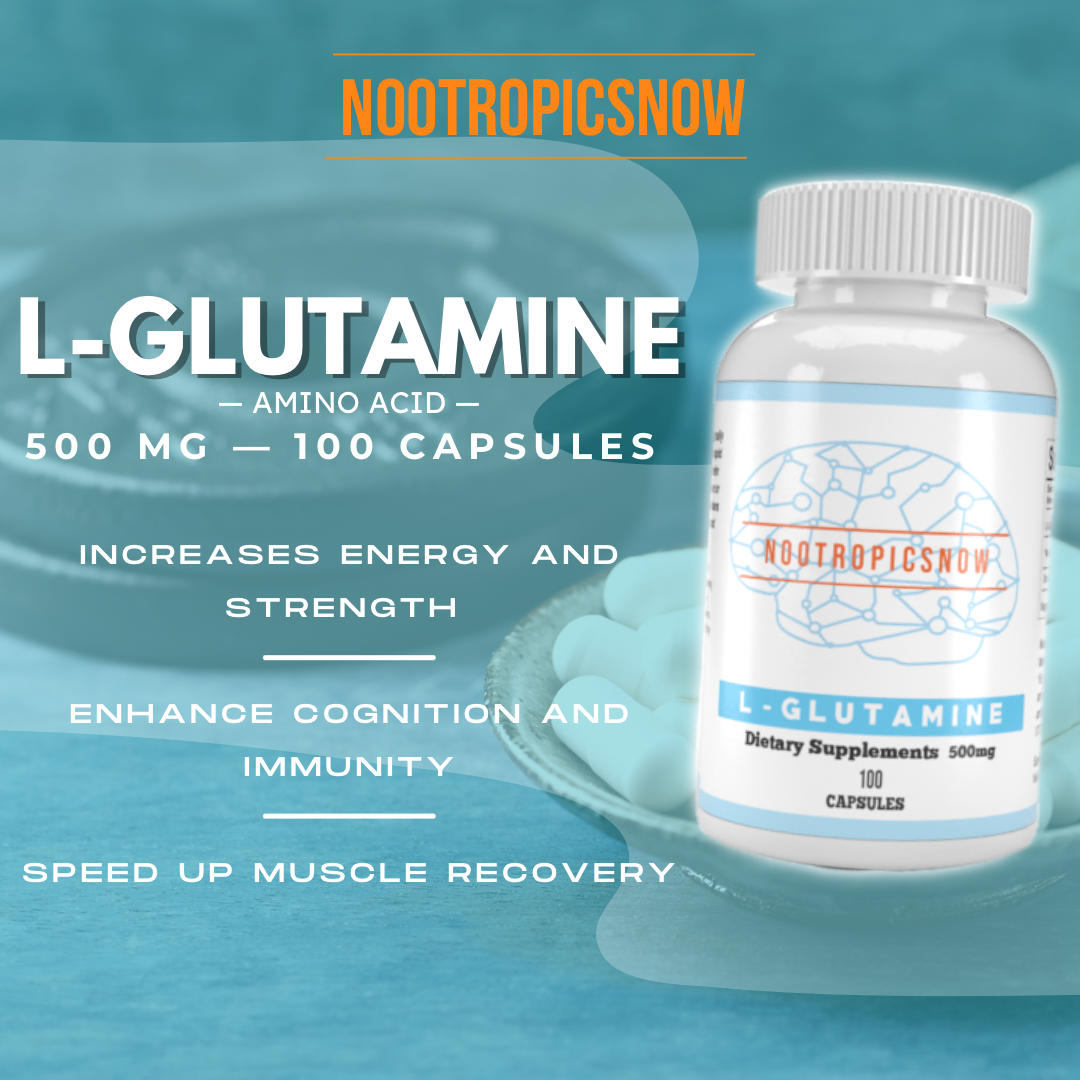L Glutamine: Benefits, Uses & Natural Factors

`markdown
L-Glutamine: Natural Factors and Benefits

L-Glutamine stands as the most abundant free amino acid in the human body, and it actively participates in various metabolic processes. From supporting a robust immune system to aiding in muscle recovery, L-Glutamine offers a wide array of benefits. Let’s explore the natural factors influencing its production and availability, along with the diverse advantages it provides.
What is L-Glutamine?
L-Glutamine is a non-essential amino acid, meaning the body can usually produce it. However, during periods of intense stress, illness, or intense physical activity, the body’s demand for L-Glutamine might exceed its production capacity. This can lead to deficiency, potentially compromising immune function, gut health, and muscle recovery.
It’s important to recognize that L-Glutamine differs from Glutamate, also known as Glutamic Acid. Glutamate functions primarily as a neurotransmitter, while L-Glutamine is essential for nitrogen transport and other metabolic functions.
Natural Factors Affecting L-Glutamine Levels
Several natural factors can influence the levels of L-Glutamine circulating in your body. Understanding these factors can aid in optimizing your health and well-being.
Diet
The food you consume plays a vital role in determining your L-Glutamine levels.
Stress Levels
Elevated stress levels, whether physical or emotional, significantly impact L-Glutamine production. Intense exercise, infections, injuries, and psychological stress all increase the body’s demand for L-Glutamine. Consequently, during these periods, the body may not be able to produce enough to meet its needs.
Age
As we age, our body’s ability to synthesize L-Glutamine may decline. This decrease can affect muscle mass, immune function, and gut health. Seniors may benefit from ensuring adequate glutamine intake through diet and, if necessary, supplementation after consulting a healthcare professional.
Gut Health
A healthy gut is essential for efficient nutrient absorption, including amino acids like L-Glutamine. Conditions that compromise gut health, such as inflammatory bowel disease (IBD) or leaky gut syndrome, can impair L-Glutamine absorption, leading to deficiencies.
Muscle Mass
Since muscles are the primary site of L-Glutamine synthesis and storage, individuals with greater muscle mass tend to have higher L-Glutamine levels. Maintaining muscle mass through regular exercise and adequate protein intake supports optimal L-Glutamine production.
Sources of L-Glutamine
Maintaining adequate L-Glutamine levels can be achieved through diet and supplementation. Understanding the various sources will allow you to make informed choices to enhance your health.
Dietary Sources
A balanced diet rich in protein and specific food groups can contribute significantly to your L-Glutamine intake.
L-Glutamine Supplements
When dietary sources are insufficient, or when there’s a specific need for increased intake (e.g., during intense training or recovery from illness), L-Glutamine supplements can be a beneficial option. These supplements typically come in powder or capsule form, allowing for easy integration into your routine.
When choosing an L-Glutamine supplement, opt for reputable brands that undergo third-party testing to ensure purity and potency. Always consult with your healthcare provider before starting any new supplement regimen.

View Product

View Product

View Product
Benefits of L-Glutamine
The benefits of L-Glutamine are diverse and far-reaching, touching upon various aspects of health and wellness. Understanding these benefits will empower you to make informed decisions about incorporating L-Glutamine into your lifestyle.
Immune System Support
L-Glutamine is a crucial fuel source for immune cells, including lymphocytes and macrophages. Supplementation with L-Glutamine during periods of stress, illness, or intense exercise can bolster immune function, reducing the risk of infections. It helps maintain the gut barrier, preventing bacteria from entering the bloodstream.
Muscle Recovery and Growth
Intense physical activity can deplete L-Glutamine stores in muscles, leading to muscle soreness and impaired recovery. Supplementing with L-Glutamine post-workout can replenish these stores, promoting faster muscle recovery, reducing muscle damage, and potentially enhancing muscle growth. It assists in protein synthesis and reduces muscle protein breakdown.
Gut Health
L-Glutamine plays a critical role in maintaining the integrity of the gut lining. It provides energy to the cells of the intestinal mucosa, helping to repair and strengthen the gut barrier. This is especially beneficial for individuals with leaky gut syndrome, IBD, or other digestive disorders. It can also help reduce inflammation in the gut.
Wound Healing
L-Glutamine is essential for collagen synthesis and cell proliferation, both crucial for wound healing. Supplementation with L-Glutamine can accelerate wound closure, reduce the risk of infection, and improve overall healing outcomes.
Brain Function
L-Glutamine serves as a precursor to glutamate, a key neurotransmitter in the brain. While the direct effects of L-Glutamine supplementation on brain function are still being investigated, some studies suggest it may improve cognitive function, memory, and mood, particularly in individuals with conditions affecting brain metabolism.
Exercise Performance
By reducing muscle fatigue and promoting faster recovery, L-Glutamine can enhance exercise performance. It allows you to train harder and more frequently, leading to improved strength, endurance, and overall fitness.
Potential Side Effects and Precautions
While generally considered safe, L-Glutamine supplementation can cause side effects in some individuals. Understanding these potential risks will allow for safe and responsible use.
Digestive Issues
Some people may experience digestive discomfort, such as bloating, gas, nausea, or diarrhea, especially at high doses. Starting with a low dose and gradually increasing it can help minimize these symptoms.
Interactions with Medications
L-Glutamine can interact with certain medications, such as anti-seizure drugs and chemotherapy drugs. It is crucial to consult with your healthcare provider before taking L-Glutamine if you are taking any medications.
Kidney and Liver Issues
Individuals with pre-existing kidney or liver conditions should exercise caution with L-Glutamine supplementation, as these organs play a vital role in processing amino acids. Consulting a healthcare professional is essential.
Contraindications
L-Glutamine supplementation is generally not recommended for individuals with certain medical conditions, such as bipolar disorder, as it may exacerbate symptoms. Always discuss your medical history with your doctor before starting any new supplement.
Dosage Recommendations
The optimal L-Glutamine dosage varies depending on individual needs and goals. However, general guidelines can help determine a safe and effective starting point.
It’s crucial to start with a low dose and gradually increase it to assess your tolerance. Consult with your healthcare provider or a registered dietitian to determine the appropriate dosage for your specific needs.
The Role of L-Glutamine in Specific Conditions
L-Glutamine can play a supportive role in managing various health conditions. Understanding these applications will provide a broader perspective on its potential benefits.
Inflammatory Bowel Disease (IBD)
L-Glutamine can help reduce inflammation in the gut and support the integrity of the gut lining in individuals with IBD, such as Crohn’s disease and ulcerative colitis.
Cancer Treatment
L-Glutamine supplementation can help mitigate some of the side effects of cancer treatment, such as mucositis (inflammation of the mucous membranes) and diarrhea.
HIV/AIDS
L-Glutamine can support immune function and improve nutrient absorption in individuals with HIV/AIDS.
Burn Injuries
L-Glutamine is essential for wound healing and immune function in burn patients, helping to reduce the risk of infection and promote faster recovery.
L-Glutamine: Natural Factors in Sports Nutrition
L-Glutamine has gained significant popularity in sports nutrition due to its potential benefits for muscle recovery, immune function, and exercise performance.
Post-Workout Recovery
After intense exercise, L-Glutamine levels in muscles can decline significantly. Supplementing with L-Glutamine post-workout helps replenish these stores, promoting faster muscle recovery, reducing muscle soreness, and minimizing muscle damage.
Immune Support for Athletes
Athletes who engage in strenuous training are at increased risk of immune suppression. L-Glutamine supplementation can bolster immune function, reducing the likelihood of illness and allowing athletes to maintain their training regimen.
Muscle Growth
While not a direct muscle-building agent, L-Glutamine can support muscle growth by enhancing protein synthesis and reducing muscle protein breakdown. It also helps maintain a positive nitrogen balance, which is crucial for muscle growth.
Maximizing L-Glutamine’s Benefits
To fully harness the benefits of L-Glutamine, consider these strategies:
By understanding the natural factors influencing L-Glutamine levels, incorporating dietary sources, considering supplementation when necessary, and adopting healthy lifestyle practices, you can unlock the numerous benefits of this essential amino acid. Whether you’re an athlete, recovering from illness, or simply seeking to optimize your overall health, L-Glutamine can be a valuable tool in your wellness journey.
`
L-Glutamine: Natural Factors and Benefits
L-Glutamine is an essential amino acid, indeed the most abundant free amino acid in human blood. Crucially, it is involved in more metabolic processes than any other amino acid. Primarily synthesized and stored in skeletal muscles, lungs, and the brain, glutamine plays pivotal roles in immune function, gut health, and muscle recovery. Knowing its natural factors and inherent benefits is vital for optimizing health and well-being.
Understanding L-Glutamine’s Natural Factors
L-Glutamine is naturally produced within the body. However, during periods of intense physical stress, injury, or illness, the body’s demand for glutamine may exceed its capacity to produce it. As a conditionally essential amino acid, glutamine needs to be obtained from dietary sources or supplements to meet the increased demand.
Biosynthesis of L-Glutamine
The synthesis of L-Glutamine occurs primarily in muscle tissue. Glutamate, another amino acid, combines with ammonia in a reaction catalyzed by the enzyme glutamine synthetase. This reaction converts glutamate into glutamine, which then becomes available for various metabolic functions. The liver, brain, and even the kidneys also contribute to glutamine synthesis.
Dietary Sources of L-Glutamine
A balanced diet rich in protein can provide sufficient amounts of L-Glutamine. Excellent dietary sources include both animal and plant-based foods.
Animal-Based Sources
Animal products are generally rich in glutamine. The best animal sources are:
Plant-Based Sources
While generally lower in glutamine content compared to animal products, plant-based sources still provide valuable amounts:
Key Benefits of L-Glutamine
L-Glutamine provides a wide array of benefits, impacting various aspects of health. Its role extends from supporting immune function to promoting muscle recovery and enhancing gut health.
Immune System Support
Glutamine serves as a primary fuel source for immune cells, including lymphocytes and macrophages. During illness or stress, the demand for glutamine increases significantly. Supplementation can help maintain immune function by providing these cells with the necessary energy to function optimally. Studies have shown that glutamine supplementation can reduce the incidence of infections, especially in critically ill patients. Glutamine helps maintain the integrity of the gut lining, preventing bacterial translocation.
Muscle Recovery and Growth
Athletes and fitness enthusiasts often turn to glutamine to aid in muscle recovery. Intense exercise can deplete glutamine stores in the muscles, leading to fatigue and muscle soreness. Supplementing with L-Glutamine can help replenish these stores, accelerating recovery and reducing muscle damage.

View Product
In addition, glutamine plays a role in protein synthesis, contributing to muscle growth and repair. It helps to reduce muscle soreness and enhances muscle glycogen synthesis which is the process of storing carbohydrates in the muscle.
Gut Health and Digestive Function
The gut is one of the largest consumers of glutamine in the body. Glutamine helps maintain the integrity of the intestinal lining, preventing “leaky gut” syndrome. A healthy gut lining is crucial for preventing harmful bacteria and toxins from entering the bloodstream, which can lead to inflammation and various health issues. Glutamine also supports the growth of beneficial gut bacteria, contributing to a balanced gut microbiome. It can also help with irritable bowel syndrome (IBS) symptom relief.
Enhancing Brain Function
L-Glutamine also has a role in brain health. In the brain, glutamine is converted into glutamate, a neurotransmitter essential for cognitive function. Furthermore, glutamine helps in the removal of ammonia, a toxic waste product, from the brain. By supporting neurotransmitter balance and detoxification, glutamine can contribute to improved mental clarity and cognitive performance. It helps to protect brain cells from damage caused by oxidative stress.
Wound Healing and Tissue Repair
Glutamine is also involved in collagen synthesis, an essential protein that supports the structural integrity of skin, bones, and connective tissues. L-Glutamine aids in tissue repair, particularly in areas affected by trauma or surgery, accelerating the healing process. It enhances the formation of new blood vessels which helps with wound closure.
Anti-Inflammatory Effects
L-Glutamine has demonstrated anti-inflammatory properties, contributing to overall health by mitigating chronic inflammation. It helps reduce pro-inflammatory cytokines, thus supporting the body’s natural defense mechanisms against inflammatory conditions.
L-Glutamine Supplementation: When and How
While most individuals can obtain sufficient glutamine from their diet, supplementation may be beneficial in certain circumstances. Considerations include proper dosage, timing, and potential interactions.
Dosage Recommendations
The appropriate dosage of L-Glutamine varies depending on individual needs and health conditions. Generally, a daily dose of 5 to 15 grams is considered safe and effective for most adults. Athletes and individuals recovering from injuries or surgery may benefit from higher doses, up to 20-30 grams per day, divided into multiple servings. It’s advisable to start with a lower dose and gradually increase it to assess tolerance.
Timing of Supplementation
The timing of L-Glutamine supplementation can influence its effectiveness. For muscle recovery, it’s best to take glutamine immediately after exercise or before bedtime. Taking it on an empty stomach can enhance absorption. Those aiming to support gut health might benefit from taking it with meals or between meals.
Potential Interactions and Side Effects
L-Glutamine is generally considered safe, but some individuals may experience side effects, particularly at high doses. These can include:
It’s important to consult with a healthcare professional before starting L-Glutamine supplementation, especially if you have existing health conditions or are taking other medications. People with kidney or liver diseases should be especially cautious because it can worsen their conditions. Pregnant and breastfeeding women should consult a doctor prior to usage.
L-Glutamine for Specific Conditions
L-Glutamine has shown promise in managing certain health conditions. While it should not be considered a replacement for conventional medical treatments, it can be a valuable adjunct therapy.
Inflammatory Bowel Disease (IBD)
Studies suggest that L-Glutamine can help reduce inflammation and improve gut barrier function in individuals with IBD, such as Crohn’s disease and ulcerative colitis. It supports the healing of the intestinal lining and helps alleviate symptoms like diarrhea and abdominal pain.
Cancer Treatment Support
Cancer treatments, such as chemotherapy and radiation, can damage the gut lining and weaken the immune system. L-Glutamine supplementation may help mitigate these side effects by promoting gut repair and enhancing immune function. It may also reduce the risk of mucositis, an inflammation of the mucous membranes.
Wound Healing After Surgery
L-Glutamine can accelerate wound healing and reduce the risk of infection after surgery. It supports collagen synthesis and promotes the formation of new blood vessels, essential for tissue repair.
Sepsis
Sepsis is a life-threatening condition caused by the body’s overwhelming response to an infection. It is seen most commonly in critically ill patients in the hospital. Supplementation with L-Glutamine may improve survival rates by modulating the immune response and protecting the intestinal barrier.
Maximizing L-Glutamine Intake Through Diet
While supplements can be helpful, prioritizing L-Glutamine-rich foods in your diet is a sustainable way to reap its benefits. Incorporate a variety of protein sources and plant-based foods into your daily meals.
Sample Meal Plans
Here are some sample meal plans that emphasize L-Glutamine-rich foods:
Breakfast
Lunch
Dinner
Snacks
L-Glutamine and the Gut Microbiome
The gut microbiome plays a crucial role in overall health, influencing everything from digestion and immunity to mental health. L-Glutamine can positively impact the gut microbiome by supporting the growth of beneficial bacteria. A healthy gut microbiome helps enhance nutrient absorption, reduce inflammation, and improve immune function.
Supporting Beneficial Bacteria
L-Glutamine serves as a source of energy for gut bacteria, promoting their growth and activity. By creating a favorable environment for these beneficial microbes, glutamine can help maintain a balanced gut microbiome. Incorporating prebiotic-rich foods, such as onions, garlic, and asparagus, alongside L-Glutamine can further enhance gut health.
Reducing Dysbiosis
Dysbiosis, an imbalance in the gut microbiome, can lead to various health issues. L-Glutamine can help reduce dysbiosis by supporting the growth of beneficial bacteria and preventing the overgrowth of harmful microbes. Maintaining a healthy gut microbiome is essential for optimal health.
L-Glutamine for Athletes and Active Individuals
Athletes and active individuals have unique nutritional needs due to the demands of intense physical activity. L-Glutamine is a valuable supplement for those seeking to optimize their performance and recovery.
Enhancing Performance
Supplementing with L-Glutamine can improve athletic performance by reducing fatigue and supporting muscle function. By replenishing glutamine stores depleted during exercise, it helps athletes maintain their energy levels and perform at their best. It enhances the muscle glycogen stores which increases the amount of stored fuel in the muscles.
Accelerating Recovery
L-Glutamine can accelerate muscle recovery after intense workouts. It reduces muscle soreness, repairs damaged tissues, and promotes muscle growth. It is especially beneficial for endurance athletes, who often experience significant glutamine depletion during prolonged exercise.
Supporting Immune Function
Intense exercise can temporarily suppress the immune system, making athletes more susceptible to illness. Supplementing with L-Glutamine can help support immune function, reducing the risk of infections and helping athletes stay healthy and active.
L-Glutamine: Beyond the Basics
Exploring less common applications of L-Glutamine reveals its extensive potential in various aspects of health.
Mental Health Benefits
Emerging research suggests a link between gut health and mental health, often referred to as the gut-brain axis. L-Glutamine, by promoting a healthy gut microbiome, may indirectly support mental well-being. A balanced gut microbiome can influence neurotransmitter production, such as serotonin and dopamine, which play a role in mood regulation.
Detoxification Support
L-Glutamine is involved in the detoxification process, helping remove ammonia from the body. Ammonia is a toxic waste product that can accumulate in the bloodstream, especially during periods of stress or illness. L-Glutamine converts ammonia into less toxic compounds, which are then excreted from the body.
Blood Sugar Regulation
Some studies suggest that L-Glutamine may help improve blood sugar regulation by enhancing insulin sensitivity. By improving the body’s response to insulin, it can help maintain stable blood sugar levels.
Conclusion
L-Glutamine is a versatile and essential amino acid with a wide range of health benefits. From supporting immune function and promoting muscle recovery to enhancing gut health and cognitive performance, L-Glutamine plays a crucial role in maintaining overall well-being.

View Product
Whether you obtain it from dietary sources, supplements, or both, prioritizing L-Glutamine can contribute to a healthier and more balanced life. As with any supplement, consulting with a healthcare professional is essential to determine the appropriate dosage and ensure it aligns with your individual health needs.
By understanding the natural factors and diverse benefits of L-Glutamine, you can make informed decisions to optimize your health and well-being. Integrating L-Glutamine into your diet and lifestyle can support immune resilience, enhance recovery, and foster a balanced gut microbiome, leading to a healthier and more vibrant you.

